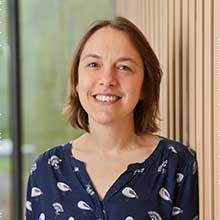
About us

Our passionate team of staff and PhD students conduct and support research on some of the biggest challenges we face in the world. All our projects are done with partners who help ensure that action results from our research, for example, by implementing our findings.
Prof. Sarah West, Centre Director
SEI's origins
SEI was established in 1989 by the Swedish Parliament. The creation of Stockholm Environment Institute and its name were derived from the United Nations Conference on the Human Environment held in Stockholm in 1972, which culminated with the Stockholm Declaration. This was the first UN conference on the connections between human development and the environment, and it initiated the concept of global environment cooperation.
The principles set out in the Stockholm Declaration remain relevant 50 years later; these include human rights and wellbeing, safeguarding natural resources for present and future generations, maintaining renewable resources, conservation, pollution, disaster risk, financial and technological transfer, urbanization, scientific research, international cooperation, and integrated development policy and planning. These principles have since been repeated, updated and mainstreamed in landmark global forums such as the Brundtland Commission in 1987, the Rio Summit in 1992 and more recently in the articulation of the 2030 Agenda for Sustainable Development in 2015. They are a key foundation and frame of reference for SEI’s conception of sustainable development.
Our university context
SEI York began as a small research unit in the University of York’s Department of Biology. By 2024, SEI York had grown to become a Research Centre, sitting at the same level as a university department within the Faculty of Sciences. We are proud to now have nearly 60 core members of staff. SEI York staff also participate in teaching, as well as PhD and MRes supervision. We actively welcome proposals from prospective PhD researchers.
Our university collaborators
SEI York's work aligns with and contributes directly to the work of other departments at the university where we have active and ongoing collaborations including - but not limited to - the Department of Environment and Geography, Biology, Chemistry, Health Sciences, Politics and International Relations, and the School for Business and Society.
We are longstanding contributors to the York Environmental Sustainability Initiative (YESI) where collaboration has a track record of funding success. We also actively collaborate with the Interdisciplinary Global Development Centre (IGDC).
We help direct Environmental Sustainability at York (ESAY) with whom we have developed our interdisciplinary module for final-year undergraduates, Sustainability and Policy, part of the York Interdisciplinary Modules initiative.
Our core values
- We are inclusive: we embrace diversity, we provide equal opportunities, and we identify inequalities and act to address them.
- We are a team: we invest in and support each other to achieve our potential, and we share workplace duties.
- We have an enjoyable work environment: we can have fun at work, and we are welcoming to visitors.
- We have good work-life balance & wellbeing: we have fair and realistic expectations of our colleagues, we are conscious of others’ feelings and personal circumstances, we are kind to each other.
- We are dependable: our colleagues trust us and can rely on us, we keep our word, and we communicate clearly.
- We have a positive and respectful working environment: we are professional in all forms of communication and with respect to all protected characteristics; we are honest; we ensure all voices and opinions are heard; and we deal with conflict in a constructive manner.
- We learn and are creative: we feel comfortable to give and accept feedback, we have the space to reflect on and learn from our failures, and we celebrate our successes.
- We live by our values: we consider the environmental and social impacts of all elements of our work.
